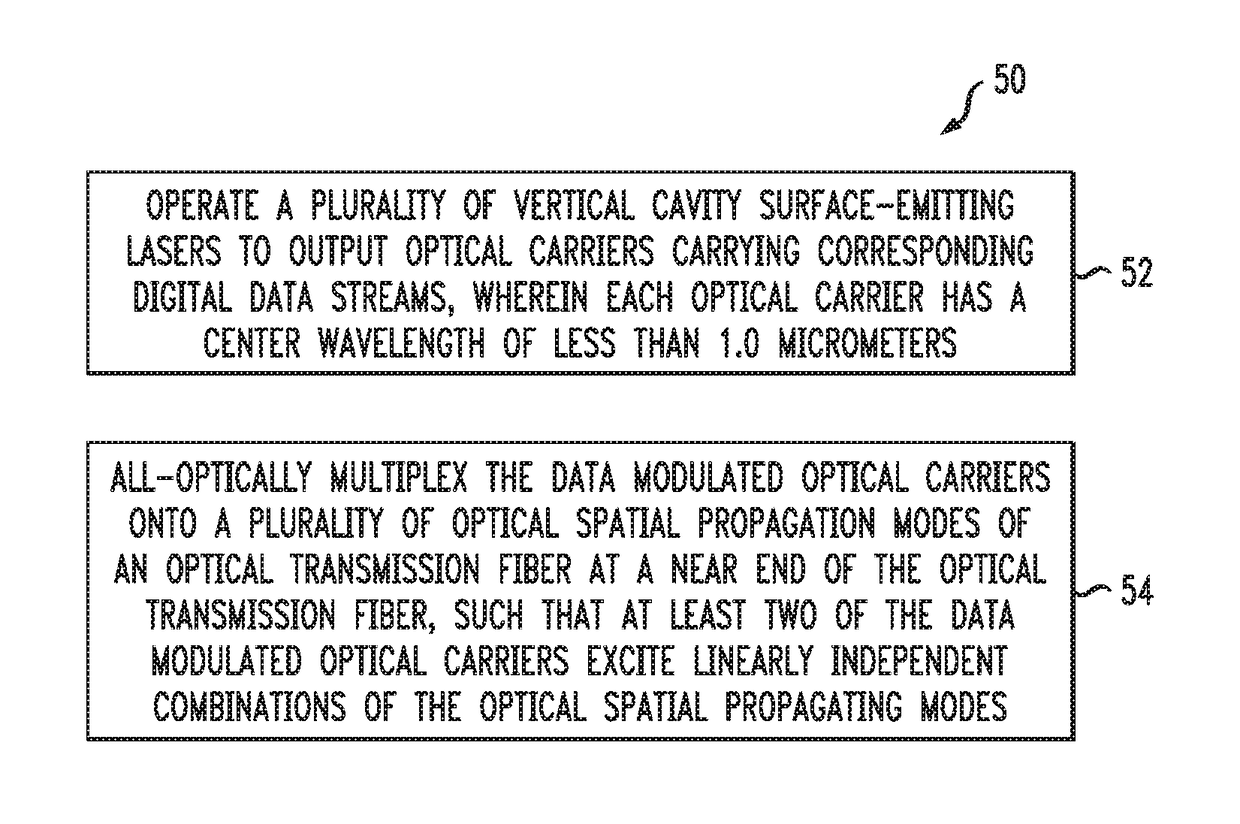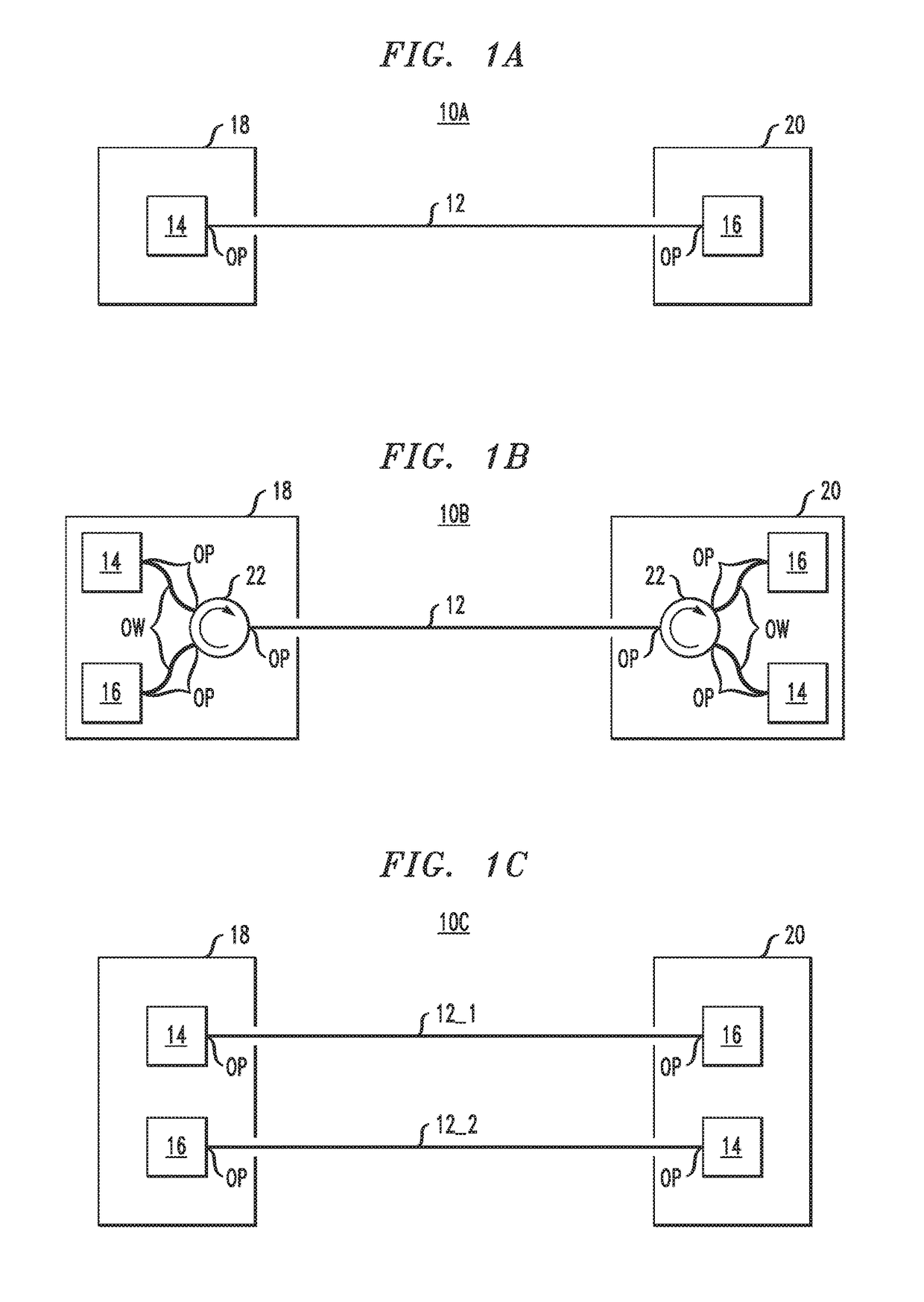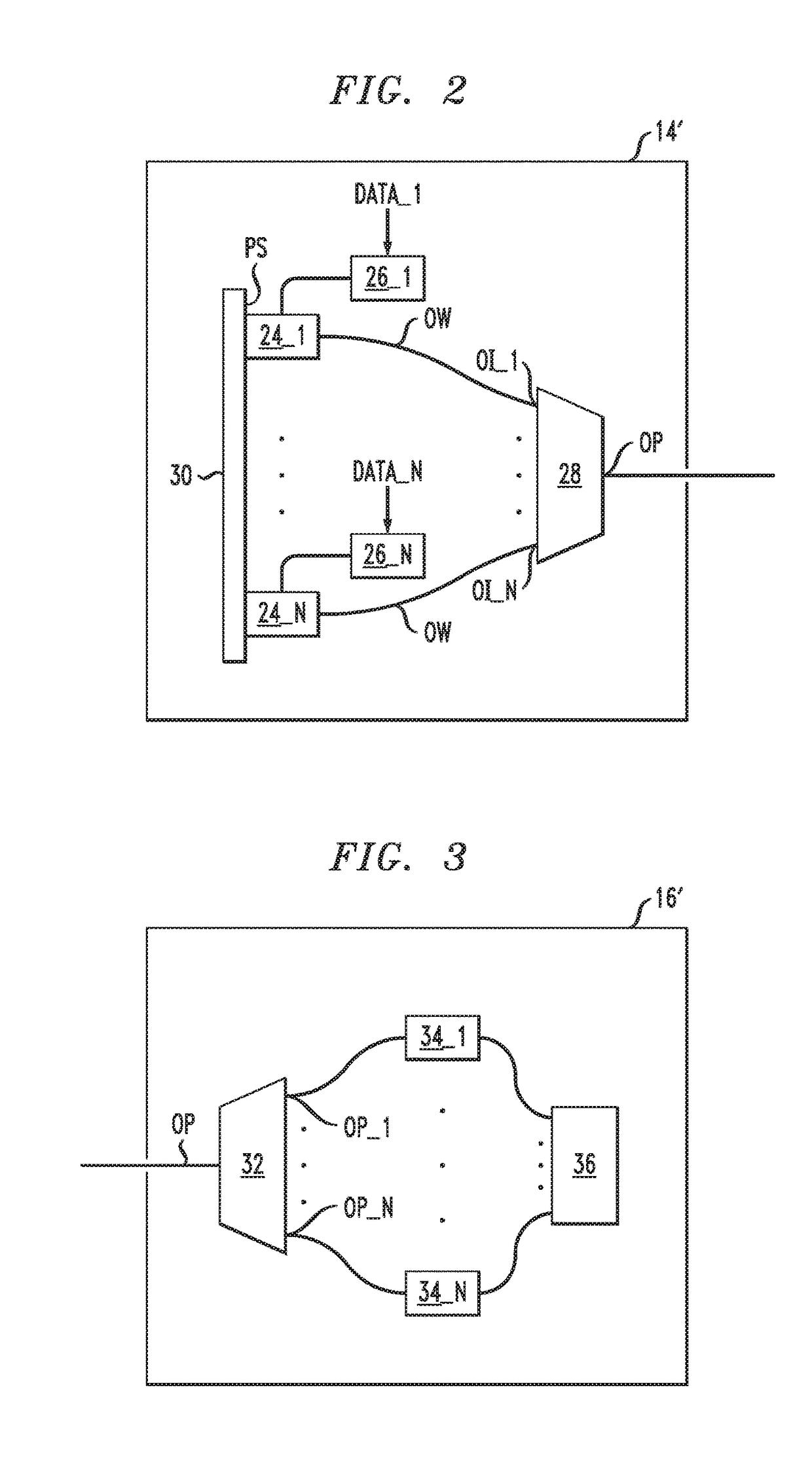Optical spatial division multiplexing usable at short reach
a technology of optical spatial division and short reach, applied in the field of apparatus and methods for optical fiber communications, can solve the problems of high cost of optical components and costly data processing components in optical transport networks, and achieve the effect of high bandwidth data communication and low cos
- Summary
- Abstract
- Description
- Claims
- Application Information
AI Technical Summary
Benefits of technology
Problems solved by technology
Method used
Image
Examples
embodiment 14
[0044]FIG. 2 schematically illustrates an embodiment 14′ of the optical data transmitter 14, which is present in one or both of the nodes 18, 20 of FIGS. 1A-1C. The optical data transmitter 14′ includes N optical sources 24_1 . . . 24_N, N corresponding electrical drivers 26_1 . . . 26_N, and an all-optical 1×N spatial mode multiplexer 28.
[0045]Each optical source 24_1-24_N is a vertical cavity surface-emitting laser (VCSEL). The different VCSELs 24_1-24_N may be configured to operate, e.g., at about the same center wavelength, e.g., less than or equal to 1.0 micrometers or even in the range of 0.7 micrometers to 0.9 micrometers. For example, the VCSELs 24_1-24_N may even output light at a center wavelength suitable for pumping conventional erbium doped optical fiber amplifiers for use in C-band optical telecommunications or may even output light at a shorter center wavelength, e.g., a wavelength between 0.80 and 0.70 micrometers, which is suitable for pumping other conventional las...
embodiment 16
[0051]FIG. 3 illustrates an embodiment 16′ of the optical data receiver 16, which is present in one or both of the nodes 18, 20 of FIGS. 1A-1C. The optical data receiver 16′ includes an all-optical 1×N spatial mode multiplexer 32; N light intensity detectors 34_1 . . . 34_N; and an electronic data processor 36 with N electrical inputs. The all-optical 1×N spatial mode multiplexer 32 is connected to operate in reverse as an all-optical N×1 mode demultiplexer in the optical data receiver 16′. In particular, the single optical port of the all-optical 1×N spatial mode multiplexer 32 is the input optical port OP of the optical data receiver 16′. The array of N optical ports OP_1, . . . , OP_N of the all-optical 1×N spatial mode multiplexer 32 are connected to output light received from the input optical port OP of the optical data receiver 16′.
[0052]Each light intensity detector 34_1-34_N is optically connected to receive light from a corresponding one of the array of N optical ports of ...
PUM
 Login to View More
Login to View More Abstract
Description
Claims
Application Information
 Login to View More
Login to View More - R&D
- Intellectual Property
- Life Sciences
- Materials
- Tech Scout
- Unparalleled Data Quality
- Higher Quality Content
- 60% Fewer Hallucinations
Browse by: Latest US Patents, China's latest patents, Technical Efficacy Thesaurus, Application Domain, Technology Topic, Popular Technical Reports.
© 2025 PatSnap. All rights reserved.Legal|Privacy policy|Modern Slavery Act Transparency Statement|Sitemap|About US| Contact US: help@patsnap.com



